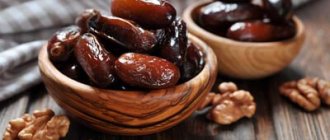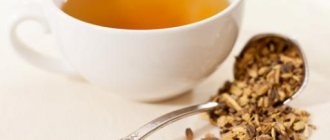Honey is a unique product with healing properties, many of which have not yet been fully studied. It is known that it contains many useful substances, can destroy harmful bacteria and fungi, and also strengthens the immune system and the cardiovascular system. Honey is recommended for use as a cure for colds and many other diseases. But there are situations where its usefulness is questioned. Many expectant mothers worry whether honey is allowed during pregnancy, and whether it will negatively affect its course and the development of the baby.
Is it possible to have honey during pregnancy?
Honey is one of the most ancient delicacies known to our people. It is not prohibited to use it during pregnancy, unless, of course, you are allergic to this product. Those who have not tried honey before pregnancy should not abuse this product even in an “interesting situation.” Often, expectant mothers change their reaction even to familiar products, and honey is a complex composition of many components. If you decide to use it to strengthen your immune system during the cold season, first try adding a few drops to your diet.
There is widespread information on the Internet that the composition of honey has much in common with the composition of human blood plasma, and therefore is definitely not capable of harm. It is not known where this information came from, but it is complete nonsense. Plasma is 90-92% water, the rest is proteins and a small amount of inorganic substances. Honey contains only about 20% water, the rest is sugar (95% dry matter) and a small amount of vegetable protein, organic acids and other substances.
Honey can not only be consumed internally, but also applied to the skin. This is a popular component of many cosmetic masks. It helps fight stretch marks and improves the appearance of the skin. You can start such cosmetic procedures without waiting for noticeable growth of the tummy. In this situation, preventive measures will definitely be useful. In fact, honey in different forms is allowed for consumption and is useful throughout pregnancy.
What are the benefits of honey during pregnancy?
The beneficial properties of honey differ markedly depending on its type. The most popular are buckwheat, linden and flower honey; you can also look for honey from acacia, jasmine, chestnut, etc. Buckwheat honey contains a lot of iron. It is useful for hematopoiesis and can lower blood pressure. Linden helps strengthen the immune system and has an anti-inflammatory effect.
At the same time, they also have common beneficial properties characteristic of all types of honey:
- Any high-quality honey contains B vitamins, as well as C, E, H, K, a huge variety of minerals, enzymes, amino acids and phytoncides.
- It increases the body's resistance to diseases and strengthens its defenses. Therefore, honey is often recommended during the cold season to protect oneself from diseases that are so unpleasant during pregnancy.
- Some types of honey contain a lot of iron, so they help prevent anemia.
- Dark varieties of honey can boast a huge amount of magnesium in their composition. This element helps cope with drowsiness and chronic fatigue, which often plague expectant mothers. It also fights cramps and muscle spasms. Increasing the amount of magnesium in the diet helps improve a woman’s well-being and stabilize her emotional background.
- According to some reports, honey relaxes the muscles of the uterus and has a positive effect on blood circulation in the pelvic organs. This improves the baby's nutrition in the womb.
- Honey contains natural enzymes that can affect digestion. If you use it regularly in small quantities, it will relieve constipation and flatulence, which cause discomfort to expectant mothers.
- The amino acids in honey can be used as a material for building new body cells, which is very important while expecting a baby.
Thanks to such a wide spectrum of action, honey can be used to combat stress and insomnia, improve the functioning of the stomach and the entire digestive tract, to prevent and treat acute respiratory viral infections, as well as to relieve their symptoms, such as a sore throat or cough. Honey is able to regulate metabolic processes in the body, so it helps eliminate swelling, improve the functioning of the brain, kidneys, heart and other organs.
Honey is a valuable source of energy during pregnancy. It contains a huge amount of carbohydrates, which are easily digested and give the body a boost of activity.
Also, do not forget that honey contains many vitamins and minerals. They support the normal functioning of all systems and organs of the expectant mother, and contribute to the proper formation and development of the fetus. At different stages of pregnancy, we appreciate different beneficial properties of honey.
Other bee products
In addition to honey, there are other beekeeping products - bee bread, royal jelly, propolis, beeswax, etc. But not everyone knows whether a pregnant woman can eat them.
Table of beekeeping products and their characteristics
| Product | Perga | Propolis | Beeswax | Royal jelly |
| Beneficial features |
Has other useful features:
|
Has other useful features:
|
|
|
| Methods of application |
Pregnant women are recommended to consume bee bread in granules. They should be placed under the tongue and dissolved. | An aqueous solution is dropped into the ears and nose and taken orally for colds. It is prepared like this:
Propolis suppositories can be used for hemorrhoids and anal fissures throughout pregnancy. However, you should first consult your doctor. |
|
|
| Precautions and contraindications |
|
| Cannot be taken if you are hypersensitive | You should stop using it if:
|
Once I bought good bee bread at an exhibition - I liked the taste of it better than honey. Apparently, the body required such a useful product. I took it one teaspoon a day, because I didn’t know if expectant mothers could take it. My pregnancy itself was accompanied by a constant feeling of fatigue. But since consuming bee bread, I began to move more, and my mood improved. I attribute these changes to her intake, since I did not eat any other foods during that period. I once had a chance to chew beeswax during pregnancy - my throat hurt, and my mother-in-law gave me this product. But I couldn’t chew it for a long time, since its taste is tart and not very pleasant. And my throat continued to hurt. As a result, I cured it with cranberry juice, which I drank twice a day for three days.
What are the benefits of honey during early pregnancy?
During the first trimester of pregnancy, many expectant mothers are haunted by unusual taste preferences and an inexplicable love for sweets. Often, a passion for desserts leads to excessive weight gain. To avoid this, you can sometimes allow yourself a teaspoon of honey. This will satisfy the need for sweets and at the same time saturate the body with useful substances.
Many expectant mothers claim that honey helped them cope with pregnancy nausea. Symptoms of early toxicosis are reduced if you drink a little sweet drink from a glass of water, a full tablespoon of honey and a few drops of lemon juice.
Another property of honey that women value in early pregnancy is its ability to soothe. Anxiety, insomnia and a feeling of exhaustion are common symptoms of the first trimester. Just a few teaspoons of this delicacy daily will help improve your mood and give you a restful sleep.
The benefits of honey in the second trimester
In the second trimester, the baby continues to grow and develop, and the mother’s appetite increases. Now she needs even more energy and nutrients, and honey will help her get everything she needs. If you take it a teaspoon a couple of times a day, it will help avoid attacks of ravenous appetite and eliminate uncontrollable cravings for sweets.
It is necessary to ensure that the amount of honey eaten does not exceed two tablespoons. Although it is healthy, it is very high in calories and can also cause weight gain too quickly.
Every week the fetus grows and puts more and more pressure on the intestines, supporting the stomach from below. This negatively affects digestion. Honey helps normalize it to some extent.
Using honey for medicinal purposes
The benefits of honey are invaluable for toxicosis. It is enough to take 1 tbsp 3 times a day half an hour before meals. l. honey, and nausea will not bother you. Only after using honey should you lie down. If a pregnant woman has an allergic runny nose, the juice of 1 lemon, diluted by half with warm water and honey, will help. You should drink the drink in small sips.
If a woman suffers from varicose veins, the following infusion will help: pour 30 g of chestnut flowers with vodka (300 g) and add 10 g of honey. Place the tincture in a dark place for a week, shaking occasionally. Then strain the infusion and drink 30 drops three times a day before meals.
Pregnant women can use honey if they have a severe cough or bronchitis, when the woman’s condition does not allow her to take medication. In this case, use a honey-onion mixture. It’s quite simple to prepare: finely chop the onion, add honey and wait until the onion releases its juice. Should be taken 3 times a day, 1 tsp.
Morning sickness, vomiting and lack of appetite lead to dehydration, which should not be allowed. Honey diluted in a glass of cool water with lemon juice will help combat this. This will help improve your condition, add strength and energy.
Contraindications
Honey is a product with a very complex composition. It contains a huge amount of substances that can affect our well-being, so in a number of situations doctors recommend refraining from using it. It is precisely because of the complexity and instability of the composition that you should not try this product for the first time during pregnancy if you have not used it before.
One of the main dangers that honey poses is the high risk of developing allergic reactions. Bees produce it from nectar collected from different types of plants, and pollen also gets into it. People who have been diagnosed with an allergy to the pollen of a certain plant are contraindicated to consume honey containing it. Even if you purchased honey of a certain variety, for example, linden or buckwheat, this does not mean that it did not contain nectar from plants growing near a buckwheat field or linden grove.
Under the influence of enzymes produced by bees, pollen changes and loses its properties, so there is an opinion that honey will not harm people with allergies to it. In fact, some of the pollen remains unchanged, so during pregnancy it is better not to take risks by consuming this product.
Some people are allergic to any bee products. Naturally, honey will be contraindicated for them. Although the allergic reaction itself in the mother’s body does not harm the fetus, except in situations where there is a threat to her life, medications can penetrate the placental barrier and affect the condition of the baby.
Expectant mothers who are obese or have a tendency to gain excess weight should not often enjoy honey. Also, this product is contraindicated in diabetes, including gestational diabetes. And you shouldn’t overestimate the beneficial properties of honey. If you get sick, first of all you need to see a doctor, and not self-medicate with honey.
Composition of honey
Honey belongs to a number of products with a complex composition. Inside it contains:
- sucrose (fructose, glucose, and some other carbohydrates);
- vitamin PP;
- tocopherol;
- ascorbic acid;
- grape acid;
- silicon;
- zinc;
- B vitamins;
- titanium;
- osmium;
- sodium;
- magnesium;
- phosphorus;
- iron;
- calcium;
- nickel;
- potassium;
- boron;
- copper;
- citric acid;
- malic acid.
It also contains many other substances. Honey has high calorie content.
Daily honey intake for expectant mothers
During pregnancy, forest or herb honey is not recommended, as its composition is too unpredictable. It is better to give preference to dark varieties of honey. But even the most useful product should not be abused. Healthy pregnant women who do not suffer from excess body weight and diabetes can eat no more than three tablespoons of this product daily.
It is best to take a little honey with a spoon and dissolve it in your mouth. You can also add it to cereals and drinks. The main thing is that the temperature of the dish is no higher than 42 degrees. When heated, many beneficial substances change and lose their properties.
Taking honey in the first trimester of pregnancy
Doctors recommend eating honey from the first days of pregnancy due to the high content of vitamins, microelements and amino acids in the product. They participate in metabolic processes and strengthen the body, which is very important in the first 3 months of bearing a child.
Consumption of dark varieties helps prevent anemia and anemia
Give preference to dark varieties of honey, for example, buckwheat, heather, angelica. These varieties are difficult to obtain, but they are high in iron, magnesium and copper.
Which honey is better to choose?
In the absence of contraindications, expectant mothers can use the honey they prefer:
- Buckwheat is rich in minerals, especially a lot of iron, which prevents anemia. It also contains potassium, which improves heart function.
- Linden honey helps strengthen the immune system. It is useful for colds, soothes sore throats and relieves coughs.
- Acacia is good for the stomach. It also normalizes kidney function.
- Clover helps tidy up digestion, improves skin condition, and heals wounds.
Other types also have many beneficial properties, but are much more difficult to find on store shelves.
Treatment with honey during pregnancy
Honey has been used since ancient times as a medicine for many diseases. It is recommended to take it for colds and ARVI, for toxicosis in pregnant women and for digestive problems. Honey is added to cosmetic masks, ointments and potions are prepared from it. But pregnancy is a special time. At this time, you need to be very careful about self-medication. In case of any ailments, you should immediately consult a doctor.
Honey treatment can only be used after it has been approved by a doctor. It is by no means the primary therapy for serious situations, but will help manage minor symptoms that do not require pharmaceutical drugs.
If honey is used as a medicine, it is rarely eaten on its own. More often it is added to milk, tea, or preparations based on it are prepared with the addition of other products. Not all of the recipes will be useful and safe during pregnancy. Therefore, before you begin self-medication, you need to carefully weigh the pros and cons.
Honey for colds
In some situations, honey can actually relieve the symptoms of colds. You can take half a teaspoon of honey into your mouth and try to absorb it longer. This will help relieve a sore throat. In addition, honey has antibacterial properties and will help clear the throat of pathogens.
If there is a high temperature, signs of intoxication and really poor health, treatment with honey is unacceptable. You must contact a medical facility.
Any lukewarm drink with honey will be beneficial. You can simply add it to water and drink in small sips. This will help relieve sore throat and coughing, and prevent mucus from drying out in your nose.
Tea with honey
Tea with honey is very tasty, but not the healthiest drink for pregnant women:
- Traditional teas contain a lot of caffeine, which is not always beneficial for expectant mothers. Therefore, it is better to avoid strong tea.
- Many herbal teas, such as hibiscus (Sudanese rose), have an abortifacient effect and are therefore not recommended for pregnant women.
- Honey, when added to hot drinks, loses most of its beneficial properties. At the same time, some experts argue that it even becomes harmful.
Therefore, contrary to popular belief that tea with honey is the best way to prevent colds during pregnancy, you should drink it little by little and carefully. If you take a weak drink and add honey after cooling it, it will not harm the body. You can also brew rosehip tea. It helps reduce the manifestations of toxicosis and has a good effect on kidney function. But you can drink it regularly only if the doctor does not prohibit it.
Milk with honey
Milk is one of the main products in the diet of an expectant mother. It is rich in calcium and vitamins. You should refuse this product only in case of individual intolerance. Adding honey to it helps make milk even more healthy.
Honey can only be added to warm or cool milk.
Warm milk with honey can be used as an effective tonic for a variety of diseases, as well as for insomnia. Just one cup of this sweet drink will help get rid of heartburn, which often bothers expectant mothers in the evenings, and will help you fall asleep faster. Besides, milk with honey is simply delicious. If a woman has a sweet tooth, such a drink will give her a few pleasant moments.
Radish with honey
Although radish with honey is considered an effective cure for the symptoms of viral and colds, doctors do not recommend using it during pregnancy. This is due to the high content of essential oils in the vegetable. In rare cases, they can provoke the development of uterine hypertonicity. Of course, the risks are small, but pregnancy is not the time to experiment on yourself. Therefore, it is better to abandon such a popular medicine and choose something safer.
Honey with lemon
Everyone knows about the beneficial properties of lemon. It contains a huge amount of vitamin C and other equally useful substances, and is often used as a tonic during the cold season. Its simultaneous intake with honey helps to enhance its positive effect on the body. You can simply add a little lemon juice to honey and eat a few teaspoons of this delicacy every day. You can also dissolve a little honey with lemon juice in warm water and get a delicious vitamin drink.
All citrus fruits, including lemon, are strong allergens. During pregnancy, you need to eat them little by little, constantly monitoring your condition.
In the first trimester, honey and lemon help overcome attacks of nausea. This delicacy will also be useful for hypovitaminosis, ARVI, sore throat, and hypertension. A tincture of lemon peel with the addition of honey is recommended to be taken to improve appetite and as a sedative.
Onions with honey
If the smell of onions doesn’t bother you and eating them doesn’t cause heartburn, you can make a cough medicine from this vegetable. Coughing during pregnancy causes a lot of trouble, straining the abdominal wall, leading to abdominal pain and insomnia. To prepare a cure for this unpleasant symptom, you need to mix half a finely chopped onion and a tablespoon of honey. After the mixture has stood for a couple of hours, it can be taken a teaspoon three times a day.
Onion syrup is also quite effective. To do this, fill one medium-sized onion with water, add a tablespoon of sugar and boil for about half an hour over low heat. Then the broth is strained, cooled and a full tablespoon of honey is added. Take this medicine one teaspoon 4-5 times a day before meals.
Honey with propolis
Propolis is one of the leaders in terms of the amount of beneficial substances among bee products, so it is often used in alternative medicine. But you should not use it during pregnancy. This is too active a substance and its effect on the body can be unpredictable. In addition, propolis is usually infused with alcohol, the use of which is contraindicated during pregnancy.
If you really want to be treated with propolis, you can prepare a water tincture, but you can take it only after consulting a doctor.
To prepare a water tincture, you need to take ten grams of crushed propolis and place it in a thermos, and then pour one hundred milliliters of water at a temperature of about 50 degrees. You need to insist for 12-24 hours. You can add a little honey to it before use. Propolis is contraindicated for asthma, as well as for allergies to bee products.
Tampons with honey
Very often, for thrush and other diseases of the genital area, women use tampons with honey. Indeed, the mild antibacterial and antifungal effect of honey can help the body fight infection. But during pregnancy you should not experiment with such treatment. At this time, such genital diseases threaten to infect the baby, so if unpleasant symptoms appear, you should immediately consult a doctor.
Cosmetic recipes from honey
Honey is used to make scrubs, masks and lotions. However, before using them, you need to apply the composition to a small area of skin and wait 15 minutes. If there is no allergy, then you can use the mixture. But if an allergy appears in the form of a rash, redness or itching, it is recommended to refuse further use of homemade cosmetics.
Scrub with honey and ground coffee
This scrub will help deal with cellulite. Prepare it like this:
- Mix ground coffee with honey in equal proportions.
- Using a scrub brush, spread the resulting mixture onto all problem areas of the body.
- Rinse off the scrub with warm water.
A coffee and honey scrub will cleanse and nourish the skin.
This scrub can be applied to the entire body - it removes toxins well, nourishes the skin and cleanses. It can also be used on the face.
Mask of yolk and olive oil
This mask will improve your complexion and nourish the skin. Prepare it like this:
- Heat a teaspoon of honey in a water bath until it becomes liquid.
- Grind the yolk with honey.
- Mix the composition with a tablespoon of olive oil.
- Apply to facial skin for 15 minutes, rinse with warm water.
A mask of honey, yolk and olive oil will nourish the skin and improve its color
Honey and calendula lotion
This lotion is good for getting rid of acne. Prepare it like this:
- Mix 200 ml of water with two teaspoons of honey and two teaspoons of calendula tincture, which is prepared as follows:
- Place two tablespoons of finely chopped dry or fresh calendula flowers in a container;
- pour 100 ml of vodka or alcohol into the calendula;
- close the container, leave in a cool, dark place for a week, then strain;
- Stir. Wipe your face with lotion morning and evening.
Lotion with honey and calendula will help cope with acne
Honey when planning pregnancy
If you love honey and are not allergic to it, consuming this product during pregnancy planning is not only allowed, but also necessary. It strengthens the body, increases defenses and improves well-being. By the way, it is recommended not only for expectant mothers, but also for fathers to include this delicacy in their diet.
During the planning period, men will benefit from a tonic made from walnuts, dried fruits, lemon and honey. All ingredients must be crushed and mixed thoroughly. Take this delicious medicine little by little throughout the day.
Honey can also be taken with a decoction of rosehip or hawthorn. If you don’t want to waste time preparing complex preparations, you can eat honey with a spoon or spread it on bread. It is also an excellent addition to fruit and dairy desserts.
Harmful effects of honey on the body of a pregnant woman
Although there are many positive properties of the beekeepers' product, there are also harmful properties. So, honey during pregnancy has the following contraindications:
- You should not use the product if you have an individual intolerance, as it is a fairly strong allergen. If you need to take it, you must first consult with your doctor managing the pregnancy.
- It is impossible to give such a delicacy to the expectant mother even if she suffers from low blood pressure. Since during pregnancy the pressure can already drop significantly, and the product can only worsen the situation.
- The daily volume of product consumed cannot be exceeded. The dosage for ordinary people should be 50-100 grams. During pregnancy, this dosage is reduced to 2 teaspoons.
How to choose and store high-quality natural honey
Honey is an expensive product, so unscrupulous producers and sellers often try to counterfeit it. But only natural and high-quality honey can benefit the expectant mother. You can recognize it by some signs:
- It has a distinct aroma of the flowers from which it was collected;
- Quickly and completely melts in the mouth;
- Slightly irritates the throat, causing a slight sore throat or similar sensation;
- Always flows in a continuous thread due to its natural viscosity.
It would be nice to make sure that the honey was collected in environmentally friendly areas, but you won’t be able to do this yourself, so you’ll have to trust the manufacturer.
Natural honey should be stored in glass, clay or enamel containers under a tightly closed lid in dark places at a temperature of +5 to +10 degrees. In such conditions it can be stored for years without losing its beneficial properties. If the honey turns sour, it means that it was pumped out immature or was stored incorrectly.










